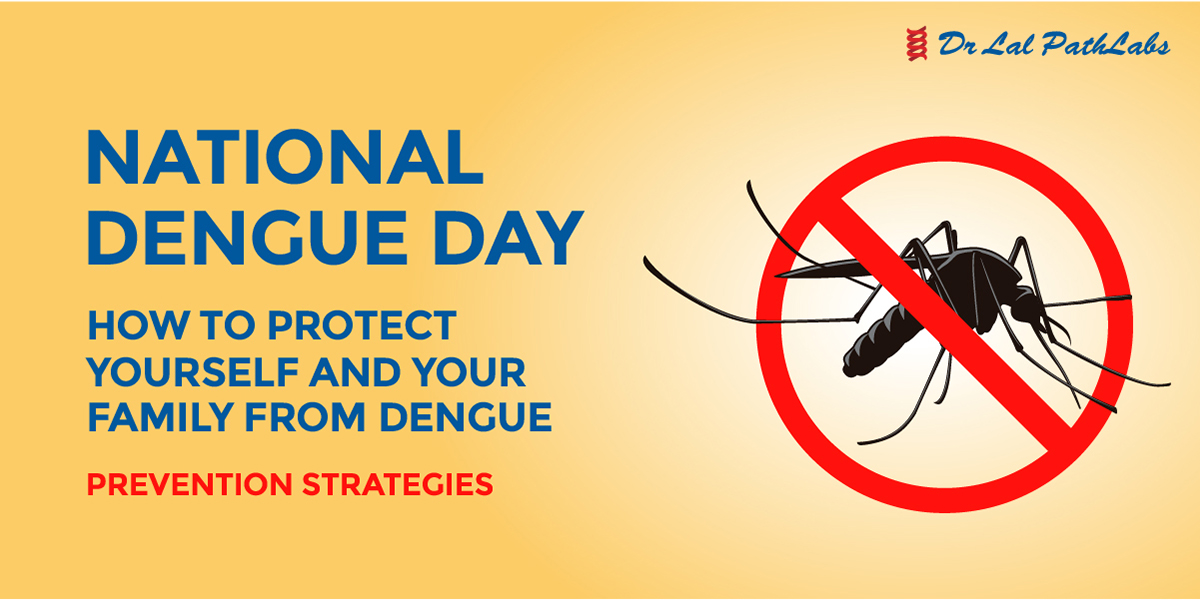Dengue: Causes, Symptoms, Diagnosis, and Prevention
Over the past few decades, dengue has become more prevalent around the world. According to WHO, more than 2.5 billion people are at risk of dengue infections. The increase in cases is most likely due to rapid development and urbanization, which provide breeding sites for Aedes aegypti, a mosquito responsible for the transmission of the dengue virus (DENV).
What is dengue?
Dengue, also called “break-bone fever,” is a viral infection spread by the bite of a mosquito infected with the dengue virus. The virus is most commonly found in Central and South America, Africa, parts of Asia, and the Pacific Islands.
What causes dengue fever?
Dengue fever is caused by any one of four types of dengue viruses and is not contagious.
How does dengue fever spread?
Dengue fever is spread by the bite of an infected Aedes mosquito (Aedes aegypti or Aedes albopictus). These mosquitoes are also responsible for spreading the Zika and Chikungunya viruses.
What are the symptoms of dengue fever?
The symptoms usually begin four to 10 days after you are bitten by an infected mosquito.
The dengue symptoms are:
- High fever
- Headache
- Muscle or joint pain
- Nausea
- Vomiting
- Pain behind the eyes
- Swollen glands
- Rash
Most people with dengue fever recover within a week, but in a few cases, if symptoms get worse, it can be life-threatening. This is called severe dengue, dengue hemorrhagic fever, or dengue shock syndrome.
In severe dengue, blood vessels get damaged, and the number of clot-forming cells (platelets) in the blood drops.
What are the symptoms of severe dengue?
The symptoms usually appear the first day or two after your fever goes away. The symptoms include:
- Severe stomach pain
- Persistent vomiting
- Bleeding from gums or nose
- Blood in the urine, stools or vomit
- Rapid breathing
- Fatigue
- Restlessness
- Bleeding under the skin
How is dengue fever diagnosed?
It is difficult to diagnose dengue fever as its symptoms are very similar to those of other diseases like chikungunya, the Zika virus, malaria, and typhoid fever. The doctor will ask you about your symptoms, travel history, and exposure to mosquitoes.
The most common tests done to diagnose dengue fever are blood tests:
- Complete Blood Count: It is done to detect low platelet count and a decrease in haemoglobin.
- NS1 antigen test: It detects the presence of the dengue virus protein NS1 in the blood within the first few days of illness.
- IgM and IgG antibody test: It is done to detect the presence of antibodies in the blood which are produced by the immune system. This is done 4 days after exposure to the virus.
- Molecular Tests (PCR): It detects the presence of the virus only up to 7 days after the onset of symptoms.
How is dengue fever treated?
Most people who have dengue recover at home. There is no specific treatment for dengue, but its symptoms can be managed. It is recommended to rest as much as possible and take pain relief medicine.
It is advised to drink plenty of fluids. Consult the doctor immediately if you have any of the following symptoms:
- Decreased urination
- Few or no tears
- Dry mouth or lips
- Lethargy
How can you prevent mosquito bites?
There are several ways to protect yourself and your family from mosquito bites.
- Use insect repellent
- Cover your child’s arms and legs.
- Once a week, empty or throw out items that hold water, such as tires, buckets, planters, toys, pools, birdbaths, flowerpots, etc.
Frequently Asked Questions
1. What are the symptoms of dengue fever?
Early symptoms of dengue fever include a high fever, a severe headache, pain behind the eyes, muscle and joint pain, fatigue, nausea, vomiting, and a skin rash.
2. How is dengue fever diagnosed?
Dengue fever is diagnosed through a blood test that looks for the presence of the dengue virus or antibodies produced by the body in response to the virus.
3. What is the treatment for dengue fever?
The treatment involves managing the symptoms and preventing complications, which can include taking pain relievers, drinking plenty of fluids, and resting. In severe cases, hospitalization may be necessary.
4. How to Prevent Dengue?
Dengue can be prevented by eliminating standing water where mosquitoes breed, wearing protective clothing, using mosquito repellent, and using mosquito nets.
5. Is dengue fever contagious?
Dengue fever is not contagious, which means that it cannot spread from person to person. It is only spread through the bite of infected mosquitoes.
6. How many days does dengue fever last?
Symptoms of dengue fever typically last for 2-7 days.
Disclaimer:
This blog is for informational purposes only and should not be construed as advice or as a substitute for consulting a physician. It is not a substitute for medical advice or treatment from a healthcare professional.













